BHEF and the Hewlett Foundation Define the Landscape for Industry's 21st Century Workplace Competencies at National Summit
Washington, D.C. (March 26) — The Business-Higher Education Forum (BHEF), in partnership with the William and Flora Hewlett Foundation, hosted a summit today at the National Press Club in Washington, D.C., convening top experts around a national agenda to ensure three goals: 1) incorporate 21st century competencies into K-16 education; 2) develop proof points of how effective networks can help focus policy makers' and the public's attention on these essential workplace competencies; and 3) demonstrate how businesses can influence internal and external stakeholders and align education and the workforce.
Thought leaders and partners from government agencies, industry, and educational associations attended the summit, which included keynote remarks from BHEF member Sean O'Keefe, chairman and CEO of EADS North America. The convening revealed robust panel discussions about the case for 21st century competencies and ideas for building a skilled workforce through the education pipeline. Panelists included: Jamai Blivin, president and CEO of Innovate+Educate; BHEF member David Maxwell, president of Drake University; Nancy Shapiro, associate vice chancellor and special assistant to the chancellor, University System of Maryland; and Julie Staggs, managing principal, global education practice, Korn/Ferry. These panels were anchored by opening remarks by Barbara Chow, education program director from the Hewlett Foundation, on strategies for shaping 21st century policy to match workforce needs, as well as a closing presentation of BHEF's Model for Strategic Business Engagement.
BHEF, with support from the William and Flora Hewlett Foundation, has examined the need for students to possess workplace competencies and core content knowledge as essential prerequisites of college and career readiness. The result is the business case for improved competencies to fuel the innovation economy.
Across sectors, businesses require their employees to possess a mastery of core content knowledge in a given field and well-developed workplace competencies, such as the ability to think critically and solve complex problems, work collaboratively, communicate effectively, and learn how to learn (e.g. self-directed learning). However, as employers scan the current workforce and anticipate future workforce needs, they frequently find that personnel are not well equipped with core content knowledge and 21st century workplace competencies, the combination of which the William and Flora Hewlett Foundation defines as "deeper learning." The cumulative effects of these deficiencies harbor major implications for U.S. economic competitiveness, security, equity, and civic engagement. The time is ripe to influence leaders in education, industry, and government to collaborate to influence policy decisions to ensure widespread educational success, and thereby enact a cycle of successful education preparation leading to a capable, successful, workforce.
"Our success in addressing the challenges of the 21st century workforce will define our ability as a nation to innovate, produce, and ultimately succeed in an increasingly competitive world," O'Keefe said. "Our failure would be equally defining."
To address this significant issue, BHEF collaborated with its networks of national business partners to conduct a series of in-depth interviews to illuminate the role deeper learning plays in hiring, evaluation, training, and promotion, and the following key insights emerged from this research:
- Rapid technological change, the increasing complexity of the challenges companies face, and the pace solutions must be brought to market have forced recent college graduates to enter the workforce with a wide combination of high-order competencies that go beyond content knowledge.
- Leaner companies are doing more with fewer employees, moving staff across divisions to give them a cross-functional work experience that deepens the company's bench strength and fills gaps in the workforce. This means employees, to be viewed as an asset to the organization, must emerge as "T-shaped professionals," flexible and able to adapt their deep content knowledge across work environments.
- Companies are developing their own assessments to screen the competencies of applicants and current employees and investing less in internal training programs to increase workplace competencies. Developing those workplace competencies at the K-16 levels will realize considerable cost savings and, concomitantly, strengthen students' competitiveness in the job market. However, developing the necessary 21st century workforce competencies in graduates will require closer collaboration between the corporations recruiting employees and the institutions educating them.
- Business-led partnerships that engage industry and educational institutions in strategic rather than transactional relationships can help address the ineffective signaling between business and higher education on the need for 21st century workforce skills.
"Our workforce is at a critical juncture," stated Brian Fitzgerald, CEO of BHEF. "Our members' collaboration has revealed not only key insights, but also a unique opportunity for business and higher education to communicate in a new way and create fresh pathways for graduates to the innovation workforce. We appreciate the support of the Hewlett Foundation in this significant work and value their partnership as we forge ahead and deploy these important takeaways to BHEF's national network of regional workforce projects."
About the Business-Higher Education Forum
Now in its 35th year, BHEF is the nation's oldest membership organization of Fortune 500 CEOs and research university presidents dedicated to advancing innovative education and workforce solutions and improving U.S. competitiveness. BHEF's business and academic members collaborate in regions across the country to design and deploy education-workforce solutions in the high-demand and emerging fields that are so critical to innovation and national security. BHEF and its members drive change locally, work to influence public policy at the national and state levels, and inspire other leaders to act.
